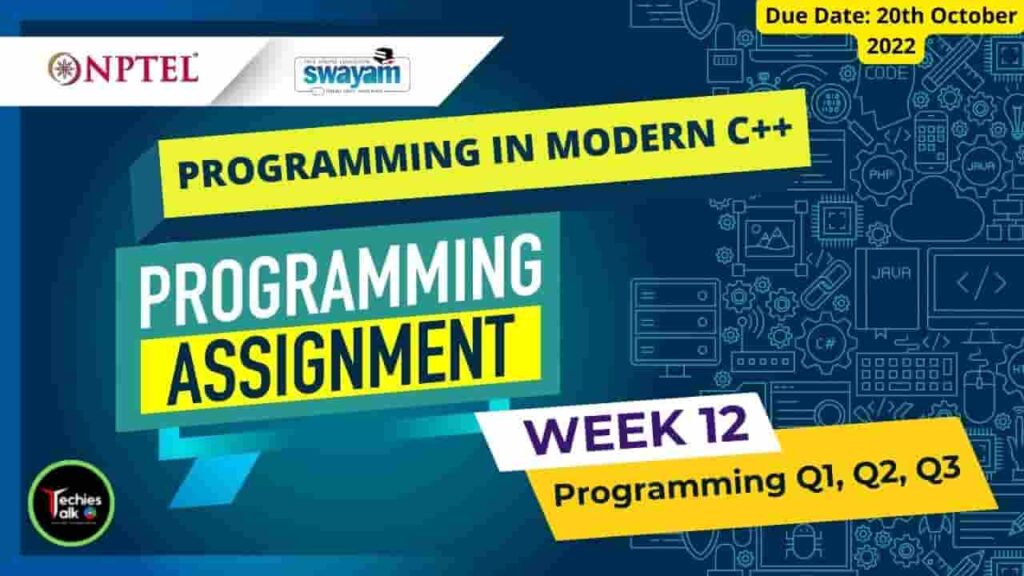
There has been a continual debate on which programming language/s to learn, to use. As the latest TIOBE Programming Community Index for August 2021 indicates – C (13%), Python (12%), C++ (7%), Java (10%), and C#(5%) together control nearly half the programming activities worldwide. Further, C Programming Language Family (C, C++, C#, Objective C etc.) dominate more than 25% of activities. Hence, learning C++ is important as one learns about the entire family, about Object-Oriented Programming and gets a solid foundation to also migrate to Java and Python as needed. C++ is the mother of most general purpose of languages. It is multi-paradigm encompassing procedural, object-oriented, generic, and even functional programming. C++ has primarily been the systems language till C++03 which punches efficiency of the code with the efficacy of OOP. Then, why should I learn it if my primary focus is on applications? This is where the recent updates of C++, namely, C++11 and several later offer excellent depths and flexibility for C++ that no language can match. These extensions attempt to alleviate some of the long-standing shortcomings for C++ including porous resource management, error-prone pointer handling, expression semantics, and better readability. The present course builds up on the knowledge of C programming and basic data structure (array, list, stack, queue etc.) to create a strong familiarity with C++98 / C++03. Besides the constructs, syntax and semantics of C++ (over C), we also focus on various idioms of C++ and attempt to go to depth with every C++ feature justifying and illustrating them with several examples and assignment problems. On the way, we illustrate various OOP concepts. The course also covers important advances in C++ 11 and later released features..
Programming In Modern C++ Week 12 Programming Assignment.
INTENDED AUDIENCE : Any interested audience
PREREQUISITES : 10th standard/high school
INDUSTRY SUPPORT : Programming in C++ is so fundamental that all companies dealing with systems as well as application development (including web, IoT, embedded systems) have a need for the same. These include – Microsoft, Samsung, Xerox, Yahoo, Oracle, Google, IBM, TCS, Infosys, Amazon, Flipkart, etc. This course would help industry developers to be up-to-date with the advances in C++ so that they can remain at the state-of-the-art.
Course Layout
Programming Assignment Q1
int main () {
std::promise<std::vector<int>>p //LINE-1
std::future<std::vector<int>>f1=p1.get_future(); //LINE-2
std::promise<long> p2; //LINE-3
std::future<long> f2 = p2.get_future(); //LINE-4
std::thread th{&product,std::ref(p2),std::ref(f1)}; //LINE-5
Programming Assignment Q2
std::mutex mq_mutex; //LINE-1
class MessageQueue{
private:
int total_elems;
int n;
public:
MessageQueue() : total_elems(0) {}
void enqueue(int num_elems){
std::unique_lock<std::mutex> lck(mq_mutex); //LINE-2
n = num_elems;
int delay = (int)((double)std::rand() / (double)(RAND_MAX)* 10);
std::this_thread::sleep_for(std::chrono::milliseconds(delay));
total_elems += n;
}
void dequeue(int num_elems){
std::unique_lock<std::mutex>lck(mq_mutex); //LINE-3
n = num_elems;
int delay = (int)((double)std::rand() / (double)(RAND_MAX)* 10);
std::this_thread::sleep_for(std::chrono::milliseconds(delay));
total_elems -= n;
}
int getElemsCount(){
return total_elems;
}
};
Programming Assignment Q3
long long operator()() { //LINE-1
long long num = 2;
for(int i = 0; i < n; num++) {
if (isPrime(num)) {
++i;
}
}
return num-1;
}
};
long long findNthPrime(int n){
auto a= async(NthPrime(n)) ; //LINE-2
return a.get() ; //LINE-3